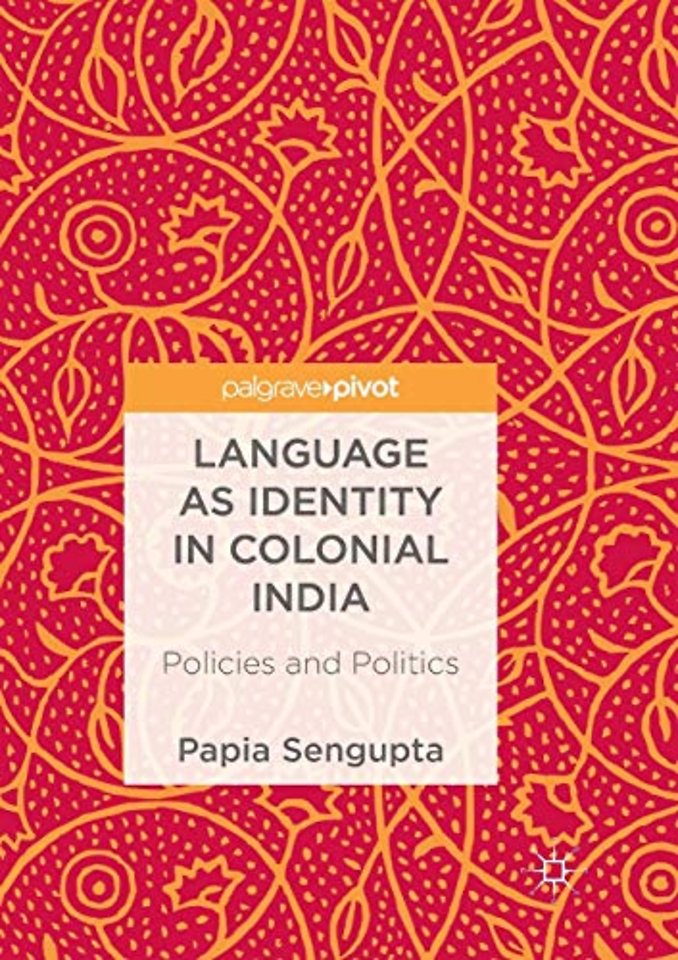Language as Identity in Colonial India
Policies and Politics
Samenvatting
This book is a systematic narrative, tracking the colonial language policies and acts responsible for the creation of a sense of “self-identity” and culminating in the evolution of nationalistic fervor in colonial India. British policy on language for administrative use and as a weapon to rule led to the parallel development of Indian vernaculars: poets, novelists, writers and journalists produced great and fascinating work that conditioned and directed India's path to independence. The book presents a theoretical proposition arguing that language as identity is a colonial construct in India, and demonstrates this by tracing the events, policies and changes that led to the development and churning up of Indian national sentiments and attitudes. It is a testimony of India's linguistic journey from a British colony to a modern state. Demonstrating that language as basis of identity was a colonial construct in modern India, the book asserts that any in-depth understanding of identity and politics in contemporary India remains incomplete without looking at colonial policies on language and education, from which the multiple discourses on “self” and belonging in modern India emanated.

